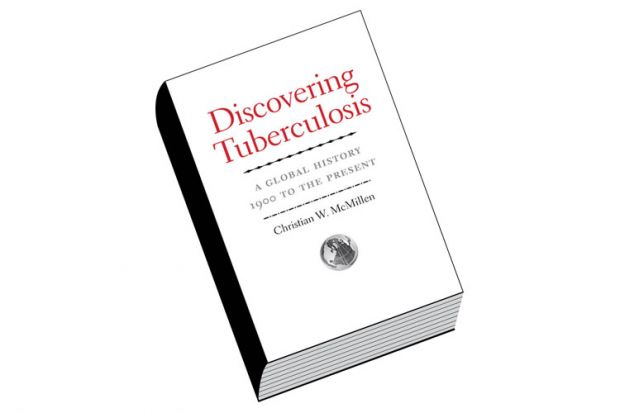Dame Barbara Stocking, who is leading the independent investigation into the World Health Organization’s response to Ebola in West Africa, referred recently to the WHO’s overall lack of “capacity and organisational culture”. Her panel’s interim report also highlighted WHO member states’ difficulties with the unglamorous but essential processes of disease surveillance. Meanwhile, the credit crunch left serious shortfalls in the organisation’s budget. Management, monitoring and money: although he is writing about a very different illness, over the past 100 years or so, Christian McMillen’s new history of tuberculosis comes to strikingly similar conclusions about the problems associated with controlling this disease.
It’s a sobering read, even for the initiated. Where one might be forgiven for not knowing a great deal about Ebola before 2013, can the same be said about tuberculosis, “history’s most deadly disease”? The forgetting and rediscovering of the reality of tuberculosis’ burden, and the often thwarted attempts to deal with it anew, drives this compelling, attritional narrative, and raises many painful questions. Is it always better to do something, even if the something isn’t properly trialled or its effects understood? What is to be done when the cheapest option isn’t the best option?
Prevention with the BCG (Bacillus Calmette-Guérin) vaccination seemed like a good idea, but it was employed after the Second World War on a vast scale without compelling evidence that it had a sufficiently high protective effect to make it worthwhile. McMillen shows how money and goodwill were wasted in India in the 1950s, where potential recipients were suspicious of an alien procedure, imposed by outsiders, at the will of a distant government. It was developed and used before the notion of the double-blind randomised clinical trial set a new standard in the testing of medicines and biological products. When it became the norm, the protocol was initially used only for new drugs and vaccines, and not the immense number of existing ones. There was much catching up to do, and BCG was one of those products whose use straddled the divide. McMillen wonders: did dogged persistence with BCG stymie research into the better vaccine that still eludes us?
The need to do something affordable drove early WHO policy to recommend use of a single drug, rather than a two-drug combination, which was more expensive and harder to take. This advice came despite the sure knowledge that drug resistance was greatly accelerated by the former. Some WHO clinicians dissented, and the tensions between those working in the field, officers at HQ and various tuberculosis luminaries is a recurrent theme here, well drawn out. The reach of the WHO officers, often running pilot projects for national programmes in the developing world, was limited. In the unregulated marketplace, which still represents many patients’ experiences of tuberculosis care, the results of the sale and incorrect use of these powerful antibiotics has been deadly. So too has been the new face of tuberculosis – its combination with HIV/Aids.
McMillen explores why it took so long to recognise that this is the tuberculosis epidemic of our generation. Working in the burgeoning field of history and health policy, he wants his analysis to reach those charged with tackling tuberculosis. His target audience is not just medics and community health workers, but the neoliberal governments whose mantra of cost-effectiveness has been shown to fail sufferers. May McMillen succeed in his aim.
Helen Bynum is honorary research associate in the department of anthropology, University College London.
Discovering Tuberculosis: A Global History, 1900 to the Present
By Christian W. McMillen
Yale University Press, 352pp, £25.00
ISBN 9780300190298
Published 20 August 2015
Register to continue
Why register?
- Registration is free and only takes a moment
- Once registered, you can read 3 articles a month
- Sign up for our newsletter
Subscribe
Or subscribe for unlimited access to:
- Unlimited access to news, views, insights & reviews
- Digital editions
- Digital access to THE’s university and college rankings analysis
Already registered or a current subscriber? Login




